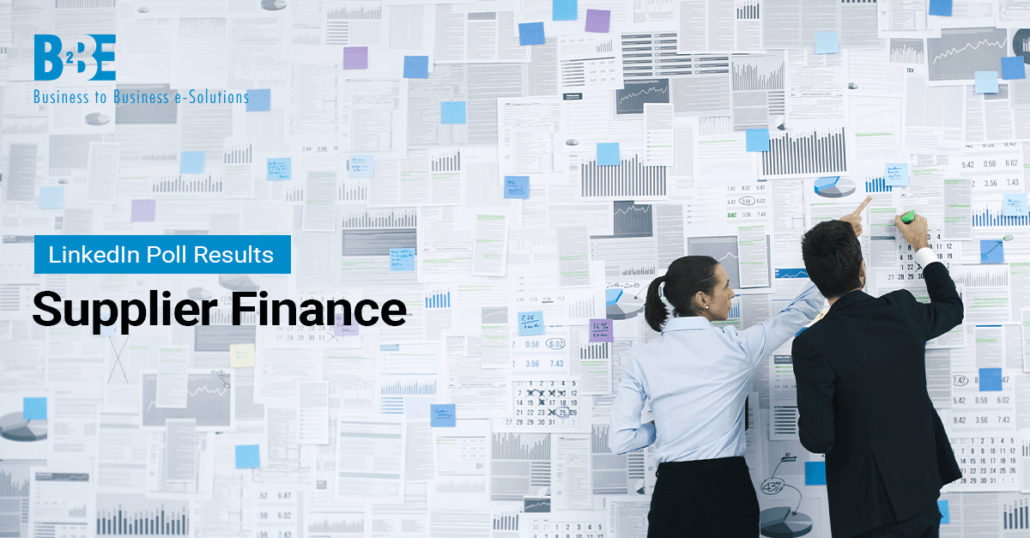Supplier finance is essential for ensuring smooth business operations and maintaining strong relationships with suppliers. However, managing supplier finance comes with its own set of challenges, which can impact a company’s cash flow, efficiency, and access to resources.
Poll results
In our most recent LinkedIn poll, we asked our followers what their biggest supplier finance challenge is in their business.
What is the biggest supplier finance challenge facing your business?
- Cash flow constraints
- Manual processes
- Payment challenges
- Limited access to financing
Cash flow constraints
With 50% of businesses pointing to cash flow constraints as their biggest supplier finance challenge, it’s clear that managing liquidity remains a top concern. Cash flow constraints can arise from a variety of factors. These include delayed customer payments, extended payment terms with suppliers, or unexpected expenses. When cash flow is tight, it can be difficult for businesses to meet their financial obligations to suppliers on time. This can lead to strained relationships and potential supply chain disruptions.
To address cash flow constraints, businesses can implement solutions such as early payment discount strategies, optimise their working capital management, or explore supplier finance programs that offer more flexible payment terms. These measures can help improve liquidity and ensure that suppliers are paid promptly, which in turn strengthens the supplier relationship.
Manual processes
Although only 13% of respondents identified manual processes as their biggest challenge, this issue can still have a significant impact on supplier finance. Manual processing of invoices, payments, and documentation often leads to inefficiencies, delays, and errors. As businesses grow and handle a larger volume of transactions, relying on manual processes becomes increasingly unsustainable.
Automating supplier finance processes can dramatically improve efficiency, accuracy, and speed. By automating invoicing, payment approvals, and data entry, businesses can reduce human error, eliminate bottlenecks, and free up valuable time for employees to focus on more strategic tasks. This not only improves the overall supplier finance process but also allows businesses to scale operations without being held back by manual tasks.
Payment challenges
For 25% of businesses, payment challenges are the biggest obstacle in managing supplier finance. Late payments, unclear payment terms, and inconsistent payment schedules can create friction between buyers and suppliers, leading to mistrust and weakened partnerships. If a business struggles to pay suppliers on time, it may face penalties, damaged relationships, or even disrupted supply chains.
To overcome payment challenges, businesses can streamline their accounts payable process by setting clear payment schedules, automating payment workflows, and improving communication with suppliers. Offering early payment incentives or leveraging supply chain financing options can also help businesses stay on top of payments and maintain strong supplier relationships.
Limited access to financing
Another 13% of respondents cited limited access to financing as their biggest supplier finance challenge. This issue can be particularly difficult for smaller businesses or those in industries where securing financing is more complex. Without access to financing options such as lines of credit, supply chain financing, or working capital loans, businesses may struggle to cover supplier payments during periods of low cash flow or unexpected expenses.
To mitigate this challenge, businesses should explore alternative financing solutions. These include invoice factoring, supply chain financing platforms, or partnerships with financial institutions that specialise in trade finance. By securing access to these resources, businesses can ease their cash flow concerns and ensure they have the liquidity needed to support their supplier relationships.
Learn more about B2BE’s Supply Chain Finance solutions.
More information
B2BE’s experience in the supply chain sector allows our customers to build, expand and adapt successfully, enabling greater effectiveness. To engage with B2BE and offer feedback on what matters most to you and your business, make sure to follow us on LinkedIn and across social media. You can also vote in our latest LinkedIn poll. If you’d like to discuss your supply chain strategy, get in touch with us.

